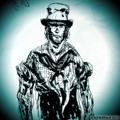Bonden reseñó Mirror & the Light de Hilary Mantel
Brilliant. Just brilliant.
5 estrellas
Completing The Mirror And The Light is like waking from a dream. I've read the entire trilogy one after the other and absolutely adored every page of every one. All three are written in a very idiosyncratic style, almost like a stream of consciousness but as if Cromwell is observing his own life at one remove. I've seen people turned off these books by that stylistic choice but to me it worked perfectly, at times it was like I was reading prose in the style of poetry - a constantly shifting perception of events, past influences and a haunting history melding together in a blur of emotions and ideas. Beautiful.
The entire trilogy has made it into my personal top 3 (I tend to lump book series together as one entity), second only to Patrick O'Brian's Aubrey/Maturin series. It's been a long time since a (series of) book(s) moved …
Completing The Mirror And The Light is like waking from a dream. I've read the entire trilogy one after the other and absolutely adored every page of every one. All three are written in a very idiosyncratic style, almost like a stream of consciousness but as if Cromwell is observing his own life at one remove. I've seen people turned off these books by that stylistic choice but to me it worked perfectly, at times it was like I was reading prose in the style of poetry - a constantly shifting perception of events, past influences and a haunting history melding together in a blur of emotions and ideas. Beautiful.
The entire trilogy has made it into my personal top 3 (I tend to lump book series together as one entity), second only to Patrick O'Brian's Aubrey/Maturin series. It's been a long time since a (series of) book(s) moved me and affected me quite so much. Brilliant.


